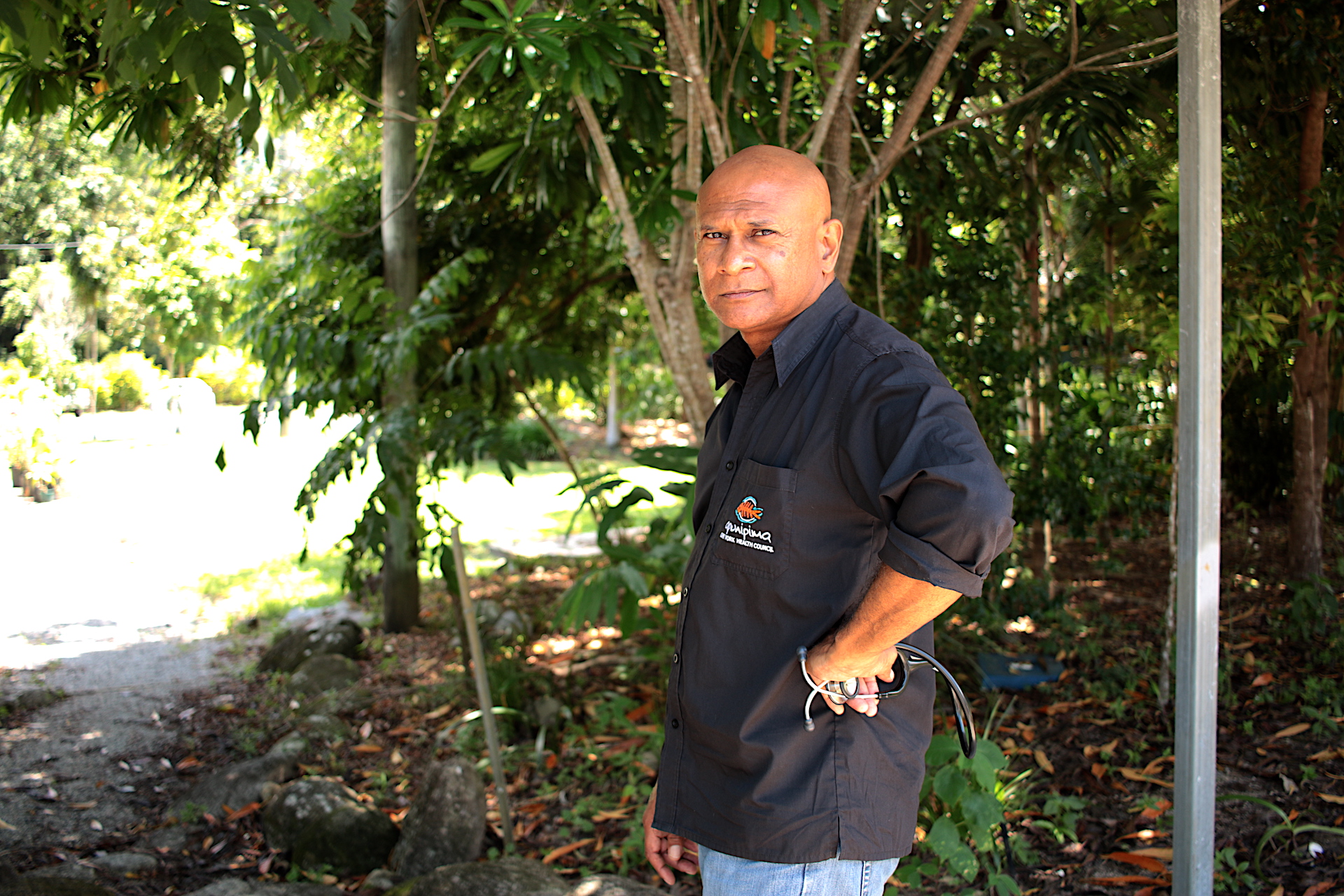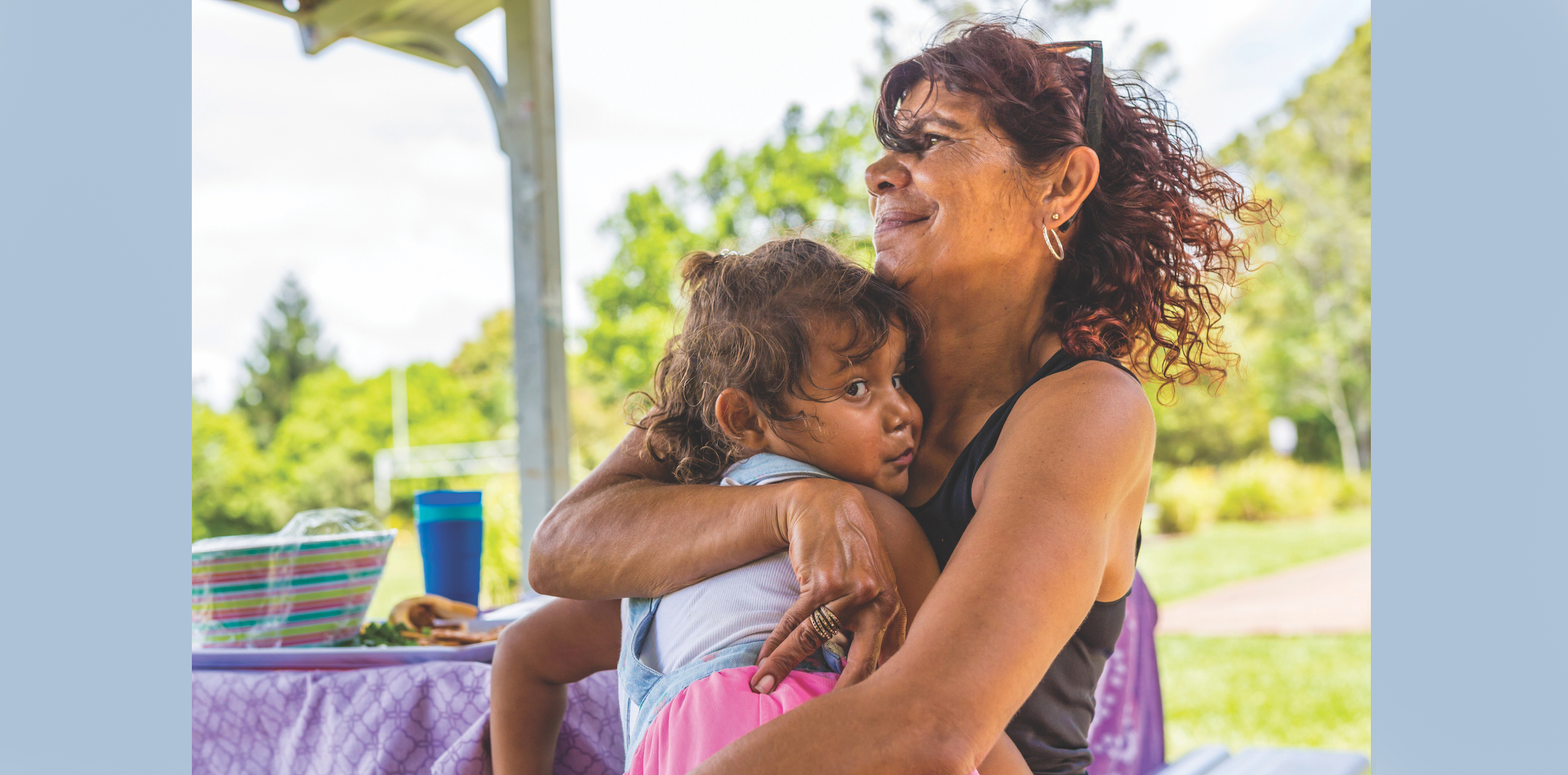Category: Science and Nature
-
Is curiosity costly or critical?
Scientists strive to make the world a better place for humanity. But is there a place in the world for research purely for the pursuit of knowledge?
-
Insect consciousness
The insect world is abuzz with life, but is there anything on their minds? Follow Amalyah Hart into a world of intricate research designed to explore the complexities of insect consciousness.
-
Brain Power: One step closer to understanding the Placebo Effect
New research that shows how a mouse’s brain produces the placebo effect may help the development of better pain-relieving drugs.
-
Harmony of the Spheres
A new study of audience members’ physical response to a concert supports the theory that music has played a pivotal role in human evolution.
-
Model or monster?
This story, published in Cosmos Magazine Issue 95, was highly commended in the UNSW Press Bragg Prize for Science Writing 2023, and was published in the Best Australian Science Writing 2023 anthology. In a two-room laboratory sequestered in a hunkered-down building in Werribee, Victoria, a small but mighty group of baby frogs, some of the…
-
The consciousness question in the age of AI
Brett Kagan, a fast-talking neuroscientist with the charged energy of someone on the cusp of a breakthrough, opened the door of a refrigerated container and gently pulled out a petri dish. As rain lashed the windows, Kagan placed the dish under a microscope, fiddled with the resolution, and invited me to look. Packed between the…
-
The possible dream
Ten fruit flies, encased in individual test tubes, pace the lengths of their glassy quarters like the prisoners they are. On a screen, a graph is plotting each fly’s horizontal position over time. For periods, the flies are still. The occasional nudge spurs a flurry of activity. Bruno van Swinderen, a professorial research fellow at…
-
Mining the moon: do we have the right?
It’s a source of helium, oxygen, silicon, aluminium, iron, manganese and titanium, and legal headaches.
-
Seaweed excites this marine scientist – even though it nearly killed her
On a summer’s morning in 2019, in the small New South Wales farming community of Bolong, on the Shoalhaven River, Dr Pia Winberg walked into the processing plant from which she was building her budding seaweed business. Winberg had overnight left a tank of liquid to filter. It contained an extract of a native species…
-
Australia’s environmental scorecard: how are we performing? And whose job is it anyway?
As the climate catastrophe morphs from looming threat to ever-present reality, our relationship with it is changing. Australians in particular are watching its effects play out in record-breaking natural disasters, from fires to floods. It’s clear by now that our actions have consequences. Those consequences are being felt around the globe, often in those regions that are most vulnerable to extremes…
-
“So smooth:” Students test drive solar car they spent three years designing
On a soaking wet spring day at Deakin University’s Waurn Ponds campus in Victoria, under a leaden sky devoid of sunshine, two former engineering students are finally taking the solar-powered car they have painstakingly designed over three long years for a spin. “It’s so smooth,” enthuses Angus McDonald, one of the two key designers among…
-
Woodside nearly doubles revenue as fossil fuel giants cash in on oil and gas prices
Woodside Energy’s quarterly revenue has nearly doubled in a year thanks to strong gas pricing, following a similar announcement from oil and gas giant Santos last week. Woodside on Wednesday reported an 81% jump in its fourth-quarter revenue despite recent declines in oil prices. The company’s high performance is likely down to the fact that most of Woodside’s LNG…
-
Environmental groups warn WA’s gas projects will derail new net-zero legislation
Western Australia is to enshrine its commitment to net zero emissions by 2050 into law, but environmental groups warn that the state’s proposed gas projects could derail the goal before it gets off the ground. The announcement, made today by Climate Action Minister Reece Whitby, includes a provision requiring Whitby and his ministerial successors to…
-
Six ways Aussie researchers hope to deliver ultra low-cost solar
UNSW Sydney projects have been awarded a glut of funding by the Australian Renewable Energy Agency (ARENA) to support research and development that will significantly reduce the cost of solar. As reported this week, the funding is part of ARENA’s ‘Solar 30 30 30’ target, aimed at achieving 30% module efficiency and 30 cents-per-installed-watt at…
-
Truss lifts ban on fracking, and will prop up fossil fuel companies in energy crisis
Leaders in the EU and the UK have announced markedly different plans to manage the escalating energy crisis, as August power-prices in Europe soar to an all-time high and Putin vows to shutter the Nord Stream 1 pipeline until sanctions are lifted. The newly-minted UK prime minister Liz Truss declined to follow the EU lead…
-
Field robotics solves problems we can’t even imagine yet – but to capitalise, it needs a more diverse data set
Australia, a country with vast tracts of agricultural land, escalating natural hazards and a booming resources industry, is a world-leader in field robotics.
-
Food waste is a problem. Is getting rid of “use-bys” and “best befores” a solution?
UK supermarkets are scrapping date labels on hundreds of products to tackle food waste: could it happen here? And is it microbiologically safe?
-
Are Earth’s major climate cycles changing? And if so, what will that mean for local weather?
Stand by for the global weather report.
-
The bother with biogas
The “clean” energy that needs to clean up its act.
-
Climate versus cost: what does the UK’s energy crisis tell us about the economics of net-zero in an energy-scarce world?
Soaring power prices have fermented opposition to net-zero targets, so can lower energy bills and climate mitigation be compatible?
-
Antibiotic resistance: an arms race going on millions of years
How can we fight antibiotic resistance by decoding its evolutionary history?
-
How do scientists know how old the Earth is?
How can we be so specific about an event so far in the past?
-
How Australia’s land can drink up carbon
The IPCC report released this week signals hope, but it comes with a fair few ‘ifs’. One of them is about the success of carbon drawdown.
-
IPCC AR6: where are we now, nearly a decade on?
IPCC sixth assessment report on mitigation: The bad news? We’re polluting more than ever. The good news, though, is mitigation strategies are more possible than ever.
-
Budget 2022: here’s what you need to know
Critical science-funding opportunities have been ignored, say the experts.
-
The chilly origins of Australia’s egg-laying mammals
New research sheds light on the origin story of our mysterious monotremes.
-
What’s going down at the Great Barrier Reef?
A massive bleaching event – the first during a La Niña climate cycle– has alarmed scientists, meanwhile new research suggests a potential conservation avenue.
-
The carbon offsets conundrum
As a whistle-blower exposes flaws in Australia’s carbon offsetting schemes it’s worth asking the question: can offsetting be done right?
-
Male contraceptive effective in mice
A non-hormonal contraceptive shows promise in mouse trials – is there hope for humans?
-
One ORC to rule them all (for now)
Clearest image yet of a mysterious new space object.
-
Shoot for the Moon: Artemis I arrives at its launch pad
In the first of many small steps, the first Moon-bound Artemis spacecraft is out on the launch pad for a series of tests.
-
Critical and rare: the minerals Australia can supply to the world
Our national leaders have signalled the importance of mining and refining critical minerals in Australia. What are these resources, and what’s at stake?
-
Why do some priority groups have the worst access to COVID vaccines?
A “business as usual” approach failed to deliver vaccines to many that needed them most.
-
The species that go extinct before we even know they exist
Our precious biodiversity is disappearing before we can even put a name to it.
-
Will Australia play host to Jurassic Park?
It’s a multi-million-dollar project, and the best chance yet to bring the Tasmanian tiger back from the abyss. Could de-extinction become a reality? And should it?
-
How much protein has been removed from the oceans in the last 50 years?
How can we go about quantifying the amount of protein removed from our oceans? And what does it tell us about our reliance on seafood, and the possibility of sustainable fishing into the future?
-
One step closer to hydrogen-fuelled planes
Airbus to test zero-emissions aircraft, but how does it work?
-
When is a new species not a new species?
What’s in a name? When it comes to conservation priorities, potentially a plant’s very survival.
-
The wild ways of La Niña
As storms batters the east coast, is this what our future looks like?
-
How prepared is Australia for its next big earthquake?
As well as providing vital insights into the risks from future earthquakes, Australia’s most sophisticated seismic network, run by Melbourne University, may also have a role to play in climate change mitigation. Read the full article in The Saturday Paper here.
-
Double-edged sword: when helpful genes begin to hinder
Genetic risk variant for severe COVID-19 actually protects against HIV.
-
Promising new data on COVID pill
But how does it work, and how soon can we use it?
-
Clean, green, mean: what’s Australia’s hydrogen future?
The colour of hydrogen is a source of heated discussion and debate, but hydrogen’s rainbow is anything but clear cut.
-
*Record scratch*: maybe there actually IS liquid water on Mars?
There is, there isn’t, there is, there isn’t… what’s the deal with liquid water on the red planet?
-
The longest ever lightning strike
This new world record was no flash in a pan.
-
How do scientists know how old the Earth is?
How can we be so specific about an event so far in the past?
-
Son of Omicron?
More like cousin of Omicron, it seems. But how worried do we need to be?
-
How did an 8000-year-old community deal with climate change?
Russian cemetery provides a glimpse into a society’s response to a mini-Ice Age.
-
Mysterious object unlike anything astronomers have seen before
What to make of a newly discovered pulsing radiation source?
-
Quantum future: computing in silicon hits 99% accuracy
Breakthrough Australian research is a major advance in quantum computing.
-
The earliest unequivocally modern human remains in Africa
There may be earlier remains of modern humans – but science is certain about these ones.
-
I’ve just had COVID – do I need to delay my booster shot?
Immunity can vary between individuals. But the sooner you can boost, the better.
-
The Australian scientists greening ammonia for a sustainable future
New technology shows the promise of an energy revolution.
-
Did life arise on hydrogen energy?
New theory on the origins of life is a gas.
-
The AI making waves in complex mathematics
Researchers are starting to use AI to develop and test abstract mathematical theorems – with surprisingly creative results.
-
Crafty coastal species are colonising plastics – with potentially devastating results
Persistent human-made debris is providing pelagic habitat for some coastal species. What happens if they make landfall someplace new?
-
Ancient footprints re-analysed as early bipedal hominin
It appears our early ancestors were more diverse than we thought, and co-existed with each other.
-
New laws to prevent space wars?
UN passes proposal to discuss new space laws as countries flex their cosmic muscles.
-
How plants survive in the Atacama
Researchers identify key genes that help hardy shrubs adapt to the Atacama desert.
-
Declining rainfall threatens vulnerable stream species in WA’s south-west
Species dying out as waterways trickle to a stop in the jarrah forests.
-
Tracing human origins by foot
Six-million-year-old Cretan footprints challenge beliefs about human evolution
-
Declining rainfall threatens vulnerable stream species in WA’s south-west
Species dying out as waterways trickle to a stop in the jarrah forests.
-
Undiagnosed endometriosis compromises fertility treatment
There’s more evidence – if any were needed – to underline the importance of correct diagnosis for endometriosis.
-
Human evolution: a last archaic hominin stronghold in India
New research reveals some of the last practitioners of an archaic human culture.
-
Nuclear power in Australia: is it a good idea?
The AUKUS submarine deal has re-ignited debate around nuclear power. What are the pros and cons?
-
Decoding the secrets of a forgotten human history during the Pleistocene
Dogged archaeologists continue to make discoveries that extend knowledge of early human history in this part of the world.
-
A new window into the peopling of Polynesia
Population genetics and machine learning draw timelines on Pacific Island migrations.
-
Can human bodies really be cryogenically frozen?
With Australia’s first cryogenics facility set to open this year, will human cryopreservation ever be a reality?
-
Native logging to end in Western Australia
The state will phase out native forest logging by 2024 – so is this decision backed by science?
-
The fight for the Martuwarra
Competing interests are vying for the resources of WA’s magnificent Martuwarra (Fitzroy) River system, while Traditional Owners sound the alarm.
-
Fossil found in Brazilian police raid is best preserved of its kind
Illegal trade bust reveals a remarkable specimen of a ground-dwelling pterosaur.
-
First ancient human DNA from the gateway between Asia and Australia
Genomic clues from the grave of an ancient ‘princess’ reveal a vanished people.
-
Afghanistan’s unreachable US$1 trillion mineral bounty
A green-future wealth that could stabilise Afghanistan for decades lies trapped by the country’s past.
-
CFC ban slowed global warming
New research shows just how much the 1987 Montreal Protocol has protected the planet.
-
Breakthrough in quantum computing
A new way to manipulate spin qubits – and hasten the arrival of the quantum computer.
-
Here today, gone tomorrow: the IPCC’s new report predicts the sea-level rise flooding our backyard
It’s certain that rising sea levels are due to anthropogenic climate change, but the effects are not felt equally. Low-lying communities across Australia and the Pacific are already gasping for air – if action isn’t taken, some islands – and entire nations – could slip beneath the waves.
-
The journey of a 17,000-year-old woolly mammoth
The mammoth covered enough of Alaska’s ranging wilds to circle the Earth twice over – in only 28 years
-
Australians still believe in science
3M State of Science Index shows Aussies have deep trust in science and scientists
-
A 3,500-year-old epic text begins its journey home
A looted relic is finally returned to its rightful place, but the problem is enormous.
-
Middle-Eastern genomes fill historical gaps
137 full genomes from eight Middle-Eastern populations reveals links to agriculture
-
COVID concerns drive supplement use
Sales of complementary medicines have been driven up by COVID fears, but Immune-boosting claims for them are doing more harm than good.
-
Earth orbital space: who’s in charge?
Tech billionaire Elon Musk has said that his Starlink satellite-based internet will be able to connect anyone, anywhere – except the polar regions – by August of this year. Musk’s floating head made the extraordinary promise via video call at the 2021 Mobile World Congress (an annual mobile communications trade show) in early July. Starlink, a…
-
Does nature have rights?
Ahead of World Environment Day, Amalyah Hart explores legal ‘rights of nature’.
-
The Arctic’s ‘Last Ice Area’ is melting quickly
Rapid and drastic melting last summer of the area predicted to be the Arctic’s final refuge of ice has been pinned to unusual meteorological conditions and climate change, with scientists suggesting the ‘Last Ice Area’ (LIA) is more vulnerable than previously thought. The LIA is a region north of Greenland and Ellesmere Island in the…
-
Did Betelgeuse supernova? Or was it just a dusty fart?
Between November 2019 and March 2020, the star Betelgeuse – the second closest red supergiant to Earth, and a star that’s slowly pulsing towards the end of its lifespan – dimmed visibly, sparking global speculation about the cause. For many in the astronomical community, it was thought at first that Betelgeuse might be about to supernova –…
-
Novavax announces high efficacy in phase 3 trials
American biotech company Novavax announced yesterday that their COVID-19 vaccine PREVENT-19 demonstrated 90% overall efficacy in its phase 3 trial, and provides 100% protection against moderate and severe disease. The phase 3 trial showed PREVENT-19 had high efficacy (90.3%) against newer variants of concern and variants of interest (VOC and VOI respectively). This means that PREVENT-19 may…
-
Solar and wind cheapest energy source in Australia
Solar and wind are the cheapest sources of new electricity generation in Australia, and renewables are outcompeting fossil fuels for cost efficiency across the board, according to a new report from CSIRO. The latest report confirms findings from previous years that renewables are not just good for the planet, they’re good for the nation’s coffers…
-
eDNA latest tool in fight against invasive species
The New Zealand mud snail is a small but hardy creature that can reproduce at epic rates. Dispersed across the globe on the waves of globalisation, populations of this tiny aquatic mollusc are crowding out native species in riverbeds around the world. Now, a team of scientists from the University of Iowa, US, have deployed…
-
Marine species flee the equator
Warming waters are triggering a mass exodus of marine creatures from the tropics. For Cosmos Magazine.
-
Papua New Guinea COVID-19 update
The COVID crisis in PNG worsens as a new strain is identified and 8,000 vaccines are delivered. For Cosmos Magazine.
-
2I/Borisov: Interstellar interloper
New comet is only the second ever interstellar visitor detected entering our solar system. For Cosmos Magazine.
-
Standing sentinel: The vanishing giants of the Central Highlands
In Victoria’s Central Highlands, ancient survivors of a lost world cling on against the odds. Economy and industry, fires and drought, loom as close threats. Amalyah Hart journeys deep into the forest, navigating the human stories that will shape it’s future.
-
Birdsong baffles babies
Researchers find that baby brains are bolstered by lemur and human voices – but not by birdsong. Full article in Cosmos online at: https://cosmosmagazine.com/animals/lemur-calls-help-babies-learn/
-
How a baby T-Rex bites
Researchers use 3D modelling to examine the jaws of different-sized tyrannosaurs. Full article in Cosmos Magazine online at: https://cosmosmagazine.com/history/palaeontology/how-a-baby-t-rex-bites/
-
Next-wave technology inspired by the ingenuity of nature
If you know where to look, there’s almost no technological or design problem that nature hasn’t solved already. Amalyah Hart dives headfirst into the world of bio-inspiration. Full text here: https://www.thecitizen.org.au/articles/next-wave-technology-inspired-by-the-miracles-of-nature This article originally published in Cosmos Magazine issue 90.
-
Seared into country and memory, lessons for a fiery future
This year’s La Nina has allowed some respite and healing after the devastation of Black Summer, but scientists warn that recognising the risks of more fires, more often, will be crucial to species survival. Originally published at: https://www.thecitizen.org.au/articles/seared-into-country-and-memory-lessons-for-a-fiery-future The lush folds of the Newnes Plateau swamps, a critical but endangered habitat in the Blue Mountains…
-

How Aboriginal health experts acted first and led the fight against the coronavirus
Enlisting local initiatives, networks and the lessons of the past, Aboriginal health services were quick off the mark when coronavirus came. Their success to date is powerful testimony to the importance of Indigenous leadership in narrowing the health gap, experts say.
-

Minding the gap: the dangers of deficit thinking
Global protests have prompted introspection in Australia about systemic racial issues, including the disparity in Indigenous health outcomes. However, Indigenous health experts say that viewing the problem through a narrow lens of “deficit” isn’t helping.
-

A multi-layered epidemic: mental health in the time of coronavirus
Mental health professionals in Victoria are reporting soaring issues as the pandemic continues.
-

Overcoming Loneliness in Isolation & Lockdown
Canadian poet Rupi Kaur couldn’t have anticipated our present moment any more vividly than when she wrote, “the irony of loneliness is we all feel it at the same time.” The social distancing measures put in place to protect us from COVID-19 have drastically reduced the circle of people we have regular access to, making…